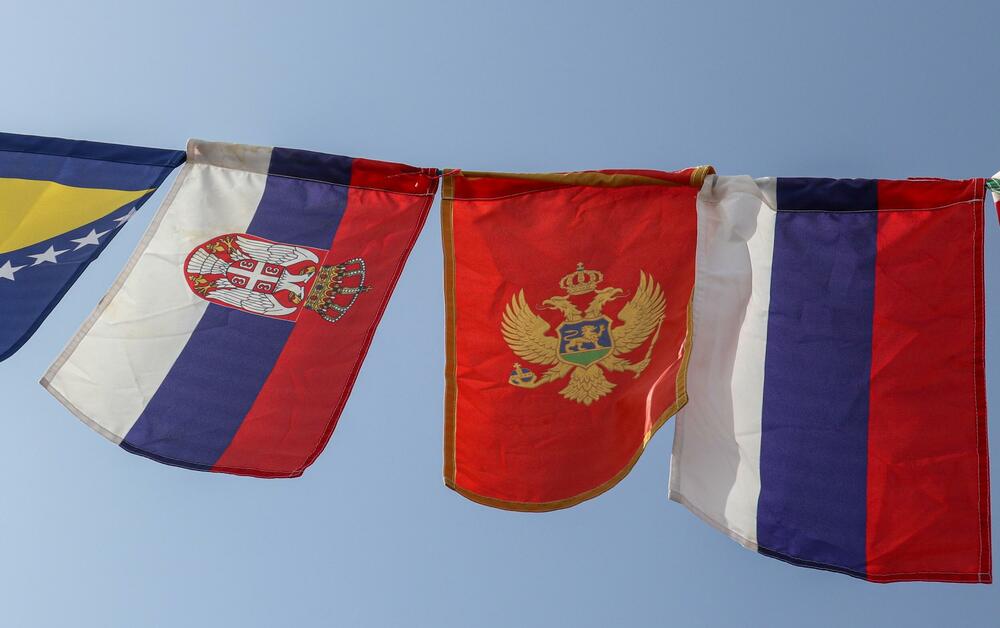Support for EU membership is declining in Serbia, and more than a third of citizens believe that the country's foreign policy should be mostly or completely focused on Russia, according to a new survey by the International Republican Institute (IRI) in the countries of the Western Balkans.
Every 10th citizen thinks that Serbia's foreign policy course should be completely pro-EU and pro-Western, the largest number of respondents are against any cooperation with NATO, and they mostly blame the West for the war in Ukraine, while only six percent believe that Russia is responsible.
If the referendum on joining the EU were held today, the majority of citizens of all Western Balkan countries except Serbia would vote for it.
Membership in the EU would be supported by 40 percent of Serbian citizens, less than according to a survey conducted in 2022, before the beginning of the Russian invasion of Ukraine (44 percent).
34 percent of respondents would vote against membership, four percent more than two years ago.
In North Macedonia and BiH, 68 percent would vote for membership, in Montenegro 79 percent, in Kosovo 89 percent and in Albania 92 percent.
In addition to Serbia, support for membership has declined in two years only in Bosnia and Herzegovina, by eight percent.
"There is a strong desire across the Balkans to strengthen economic ties with Western economies and join the EU. This broad support shows that people in the region believe that further EU integration can help achieve sustainable prosperity," said IRI Europe Director Paul McCarthy.
The majority of citizens of Serbia (54 percent) do not think that the EU is serious in its intention to offer membership to the countries of the Western Balkans, while the majority of citizens of Kosovo (62 percent) and Montenegro (59 percent) believe this.
According to the survey, only in Serbia the majority of respondents (49 percent) think that Russia's invasion of Ukraine is completely or somewhat justified, while in the other countries of the Western Balkans, the majority thinks the opposite.

Russian action in Ukraine is completely or somewhat unjustified for 37 percent of respondents in Serbia, 53 percent in North Macedonia, 61 percent in Montenegro, 65 percent in Bosnia and Herzegovina, 72 percent in Kosovo and 82 percent in Albania.
Only six percent of participants in the research in Serbia think that Russia is most responsible for the war, while 43 percent blame the West, 10 percent Ukraine, and 36 percent believe that all sides are responsible.
The largest number of respondents in North Macedonia and Montenegro believe that all parties are responsible, and in Bosnia and Herzegovina, Albania and Kosovo they mostly blame Russia for the war.
"Although these numbers are mostly positive, the responses in Serbia are worrying. If peace and security are long-term goals in the Balkans, the better option for Serbia is to reject Russian offers and build stronger ties with the West," McCarthy said.
When asked what the foreign policy course of their country should be, 31 percent of respondents in Serbia said that it should be equally oriented towards the West and Russia, 27 percent that it should be pro-Russian while maintaining relations with the EU and the West, and 14 percent that it should to be pro-Western, but to maintain ties with Russia.
Compared to other countries in the region, Serbia has the highest number of respondents who support only a pro-Russian foreign policy (12 percent) and the fewest who support a policy only oriented towards the EU and the West (10 percent).
The vast majority of citizens of Kosovo (87 percent) and Albania (82 percent) believe that foreign policy should be directed exclusively towards the EU and the West, and 39 percent of respondents in BiH, 36 percent in Montenegro and 31 percent in North Macedonia think the same. Support for full membership in NATO is also lowest in Serbia (three percent), and highest in Kosovo (88 percent) and Albania (85 percent).
A fifth of respondents said that Serbia should cooperate more closely with that military alliance, but not be a member, 30 percent support more communication, but no cooperation, and 39 percent are against any relations with NATO.
According to 46 percent of respondents, Russia is Serbia's most important ally, followed by China (14 percent) and Hungary (5 percent), while the biggest threat is the USA (36 percent), Albania (18 percent) and Kosovo (10 percent).
Most respondents in Kosovo, Albania and BiH see Serbia as the biggest threat to their country, and as the most important ally in North Macedonia and Montenegro. More than 2 people participated in the survey conducted from February 5 to March 7.000.
Bonus video:




